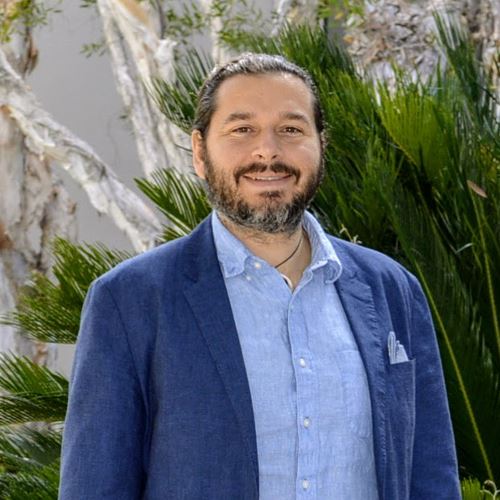Leaning Into Masculinity: Applying the New APA Guidelines for the Psychological Practice with Boys and Men - 4 CEs
Intermediate Course
Presenters: Daniel Singley, Ph.D. & John P. Rettger, Ph.D.
Friday, June 26, 2020
10:00 am - 3:30 pm
Via Zoom
FREE FOR SDPA MEMBERS
As the field of psychology has matured, our focus has increasingly shifted toward more emphasis on the influences of gender and culture, yet contemporary training and practice in psychology has been slow to incorporate findings from the vibrant study of men and masculinities (Brooks & Elder, 2016). A number of researchers, theorists, and clinicians are rethinking previous conceptualizations of masculinity through the multicultural lens that feminist researchers have traditionally utilized in studies of women. Psychologists who are committed to diversity and gender-equitable practice will benefit from learning about the current state of the psychology of men and masculinities (APA, 2018; Kiselica, Benton-Wright, & Englar-Carlson, 2016). This workshop will draw from a variety of theoretical and research bases in order to present a critical view of the history and current state-of-the- art of traditional male socialization balanced with key findings about clinical practices from the new APA Guidelines for Psychological Practice with Boys and Men (APA, in press).
Although the current formal academic study of the psychology of men is largely a direct extension of the feminist multicultural lens which informed the women s liberation movement of the 1960’s and 1970’s, the term, “masculinity” is often tacitly associated with toxicity, hegemony, misogyny, or even reflecting a lack of gender identity (Becker & Swim, 2012). Research has documented that psychotherapists commonly evidence systemic gender bias against men in treatment (Mahalik et al., 2012), reflecting a critical - yet generally neglected - social justice issue. For example, therapists without formal training in the psychology of men and boys commonly have gender role stereotypes regarding boys’ externalizing behaviors which can result in boys being disproportionately diagnosed with ADHD compared to girls (Bruckmüller, Margaf, & Hines, 2012). This presentation will clarify how the study of gender in the 1970’s and the ensuing pursuit to uncover sexist biases in psychological conceptualizations of human development have progressed into a broad, interdisciplinary field of study and practice. Researchers, administrators, clinicians, and academics alike will benefit from understanding how men’s and boys’ lives are shaped by biopsychosociocultural influences with implications for suicide, medical health complications, substance abuse, incarceration, relational problems, and family well-being (O’Neil, 2015). Studies have shown that men and boys are often very hesitant to seek help for mental health issues, and the passage of the APA’s Guidelines (APA, in press) represents a clear road map for competent, ethical practice which are likely to help practitioners make psychotherapy more effective and approachable to men and boys.
Precarious manhood, positive masculinities, gender role conflict, normative alexithymia, major depressive disorder - male type, social constructionist approaches to masculinities, generative fatherhood, help-seeking and health disparities, men’s body image disturbance, masculinity inLGBTQ men, pornography use, and a host of findings from research on groups including Latino, Asian American, and African American men reflect some of the key topics to be addressed in this workshop. The presenter will provide a solid foundation in the most critical issues currently being addressed in the psychological study of men with an eye toward giving participants concrete, actionable take-aways and resources which they can apply in their own work with people of all genders. By attending, participants will have a clear understanding of the ten guidelines set forth in the APA guidelines along with how to apply these guidelines in psychotherapy.
This presentation will combine didactic instruction, multimedia demonstrations including videos, case studies, and question-and-answer in order to provide attendees a multi-pronged learning experience.
Online Objectives
(1) Identify common stereotypes and misconceptions in the psychology of men.
(2) Describe common key psychological issues related to masculinities including precarious
manhood, normative alexithymia, and positive masculinities.
(3) Describe the ten guidelines and suggestions for clinical application in the APA’s Guidelines for
Psychological Practice with Boys and Men.
(4) Cite important biopsychosociocultural influences for men for men from diverse backgrounds.
Presenters

Daniel B. Singley, Ph.D., ABPP
Dr. Singley is a San Diego-based board certified psychologist and Director of The Center for Men’s Excellence. His research and practice focus on men’s mental health with a particular emphasis on reproductive psychology and the transition to fatherhood. Dr. Singley’s won the American Psychological Association’s 2017 Practitioner of the Year Award from the Division on Men & Masculinities. He is Past President of the APA’s Section on Positive Psychology and currently serves on the Board of the APA’s Society for the Psychological Study of Men and Masculinities as well as Postpartum Support International. He conducts trainings and presentations around the country to assist individuals and organizations to enhance their level of father inclusiveness and founded the grant-funded Basic Training for New Dads, Inc nonprofit and Padre Cadre social networking application just for dads in order to give new fathers the tools they need to be highly engaged with their infants as well as their partners. In his free time, Dr. Singley likes to cook, surf, read, and drive his two sons to activities all over town so they can’t escape his annoying shrinky questions. Follow him @MenExcel and www.facebook.com/MenExcel/

Dr. John Rettger
Dr. Rettger is a San Diego-based licensed psychologist (CA license PSY27863) and staff psychologist at The Center for Men’s Excellence. His psychotherapeutic focus is on utilizing a holistic approach to mental health that is grounded in research and evidence-based methods such as Mindfulness and Cognitive Behavior Therapy for children (8 years old+), adolescents, and adults. Dr. Rettger works also works with couples and families.
Dr. Rettger’s previous work at Stanford University focused on researching and delivering mindfulness interventions in community settings was featured on the PBS Newshour (https://www.pbs.org/newshour/show/low-income-students-combat-stress-mindfulness). He recently co-edited a book (https://www.appi.org/Products/Child-and-Adolescent-Psychiatry/Applied-Mindfulness) published by the American Psychiatric Association Publishing about the applications of mindfulness for mental health across community and treatment settings.
Dr. Rettger currently conducts online mindfulness instruction through a collaboration with Stanford University’s Early Life Stress & Resilience Program where he previously directed mindfulness programming, and Pure Edge, Inc., where Dr. Rettger served as a consultant and research collaborator.
Doctoral Studies
Dr. Rettger attended Duquesne University in his hometown of Pittsburgh, PA for undergraduate (Business & Information Technology) and graduate studies (M.S.Ed. child psychology concentration). He earned his Ph.D. in clinical psychology from the Institute of Transpersonal Psychology (now Sofia University) in Palo Alto, CA. During his doctoral studies his research concentrated on spiritually integrative approaches to psychotherapeutic healing. Dr. Rettger completed his pre-doctoral training at the Institute of Transpersonal Psychology’s Community Center for Health & Wellness and post-doctoral training hours at the Stanford Early Life Stress Research Program.
Experience
Dr. Rettger specializes in the treatment of trauma, anxiety, stress, and depression among children, adolescents, and adults. He utilizes evidence-based therapy modalities including Trauma-Focused Cognitive Behavioral Therapy, Cognitive Processing Therapy, and Cognitive Behavioral Therapy. He utilizes the research supported Gottman Method for couple’s therapy. Drawing from his research expertise, Dr. Rettger integrates mindfulness and relaxation techniques into psychotherapy for holistic well-being.
Conflict of interest or commercial support: No
Target Audience:Licensed Psychologists, Graduate Psychology Students and Allied Mental Health Professionals
Instructional Level: Intermediate
Attendance Policy: CE Credit and Certificates will not be issued to those who arrive later than 10 minutes or leave early from any course scheduled time. This policy is highly enforced to ensure compliance with APA Guidelines. You must be signed on and off for the duration of the course to receive full credit.
Cancellation Policy: No refund will be given to any registered individual who is a no-show to a course. Any individual canceling within 72 hours of a course will be charged 50% of the course fee.

American Psychological Association
The San Diego Psychological Association (SDPA) is approved by the American Psychological Association (APA) to sponsor continuing education for psychologists. SDPA maintains responsibility for this program and its content.
In California, APA approved CE’s are valid for licensed psychologists, licensed school psychologists, LCSW, LFMT, LEP & LPCC licensees. Though APA is a national organization, the out of state licensee should check with their state governing board to make sure that APA approved CE'’s are valid in their state for their license.